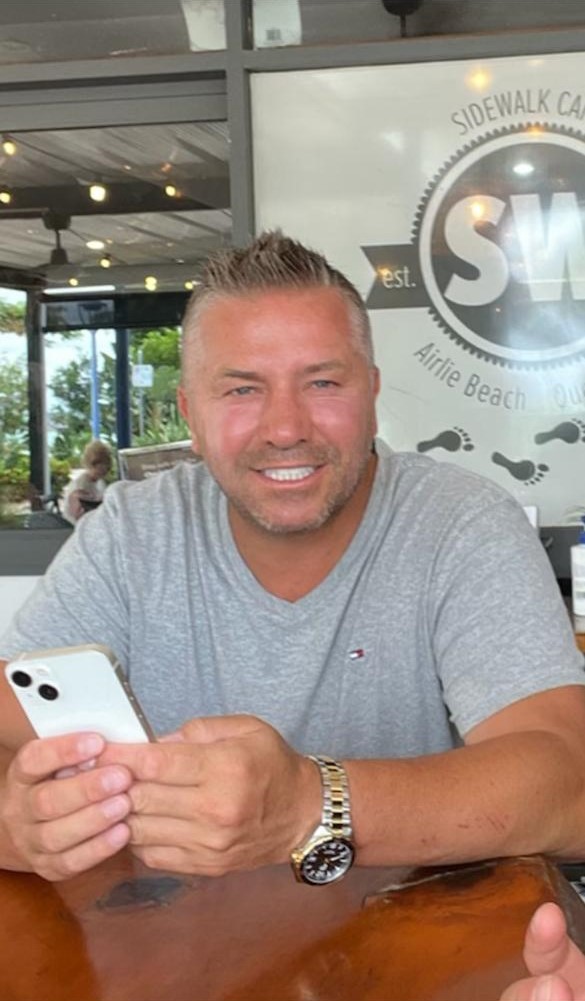In both the boxing ring and the business world, success often hinges on the ability to take calculated risks. No one understands this better than David Deicke, an Australian entrepreneur, multimillionaire, and former boxer who now leads Melbourne Collision Repair Centre. David’s journey from the high-stakes world of boxing to building a thriving business is a testament to the art of balancing risk and reward.
For young entrepreneurs, the challenge lies in distinguishing between risks worth taking and those that could jeopardize their goals. In this blog, we delve into David’s strategies for navigating high-stakes decisions and provide actionable advice on evaluating risks effectively.
1. Embrace Risk as an Opportunity
David Deicke believes that risk is an integral part of progress. Without it, growth and innovation are impossible. However, he’s quick to point out that not all risks are equal.
“Every great opportunity comes with risk,” David explains. “The key is to understand it, prepare for it, and ensure it aligns with your long-term vision.”
Key Takeaway: Instead of fearing risk, view it as an opportunity for growth. By embracing a positive mindset, you’ll be better equipped to approach challenges strategically.
2. The Importance of Research and Preparation
Whether stepping into the boxing ring or making a business investment, preparation is non-negotiable for David. At Melbourne Collision Repair Centre, he relies on data, market research, and industry insights to guide his decisions.
“Risk without preparation is recklessness,” David emphasizes. “Do your homework, and the unknown becomes less intimidating.”
Actionable Tip: Before taking a risk, gather as much information as possible. Analyze market trends, consult with experts, and evaluate the potential outcomes to make an informed decision.
3. Evaluate the Risk-to-Reward Ratio
One of David’s core strategies is to assess the potential reward relative to the risk. In boxing, a bold move might win a match but could also expose vulnerabilities. Similarly, in business, it’s crucial to weigh the upside against the downside.
“Ask yourself, ‘Is the reward worth the risk?’” David advises. “If the potential benefit outweighs the downside, and you’re prepared, it’s worth pursuing.”
Actionable Tip: Create a simple risk-reward analysis for your decisions. List the potential benefits and downsides, and determine whether the reward justifies the risk.
4. Start Small and Scale Up
David often recommends starting with manageable risks before taking on larger ones. This approach allows entrepreneurs to learn and adapt without jeopardizing their business.
“In boxing, you don’t start by fighting the champion; you build your skills in smaller bouts,” David explains. “The same applies in business. Take smaller risks, learn from them, and build your confidence.”
Actionable Tip: Test new ideas on a small scale before committing significant resources. For example, launch a pilot program or limited product release to gauge feasibility and demand.
5. Build a Safety Net
A calculated risk involves planning for worst-case scenarios. David ensures that every major decision at Melbourne Collision Repair Centre includes contingency plans to protect the business from significant losses.
“Risk doesn’t mean gambling everything,” David says. “A safety net ensures that even if things don’t go as planned, you’re still standing.”
Actionable Tip: Allocate resources for emergencies and create backup plans. Diversify your investments and maintain financial reserves to mitigate risks.
6. Trust Your Instincts—But Validate Them
Years of experience have sharpened David’s instincts, but he always backs them up with data and expert input.
“Your gut often knows what your brain hasn’t processed yet,” David shares. “But instincts should guide you, not be your only compass.”
Actionable Tip: Combine intuition with evidence. If your instincts point you in a direction, validate them through research, discussions, or small tests before fully committing.
7. Learn from Every Outcome
Not every risk will lead to success, but every outcome offers valuable lessons. David credits much of his entrepreneurial growth to analyzing both wins and setbacks.
“In boxing, you don’t win every match. But every fight teaches you something,” David notes. “The same applies to business. Success comes from learning and improving.”
Actionable Tip: After making a high-stakes decision, take time to reflect. Identify what worked, what didn’t, and how you can apply those lessons to future decisions.
Final Thoughts: The Art of Balancing Risk and Reward
David Deicke’s approach to risk-taking demonstrates that it’s not about avoiding risks but managing them intelligently. By embracing preparation, evaluating potential outcomes, and learning from every experience, entrepreneurs can navigate high-stakes decisions with confidence.
For young entrepreneurs, the lesson is clear: Take the leap, but do so with your eyes wide open. As David often says, “Success is about calculated risks. Prepare, plan, and then step into the ring ready to win.”

